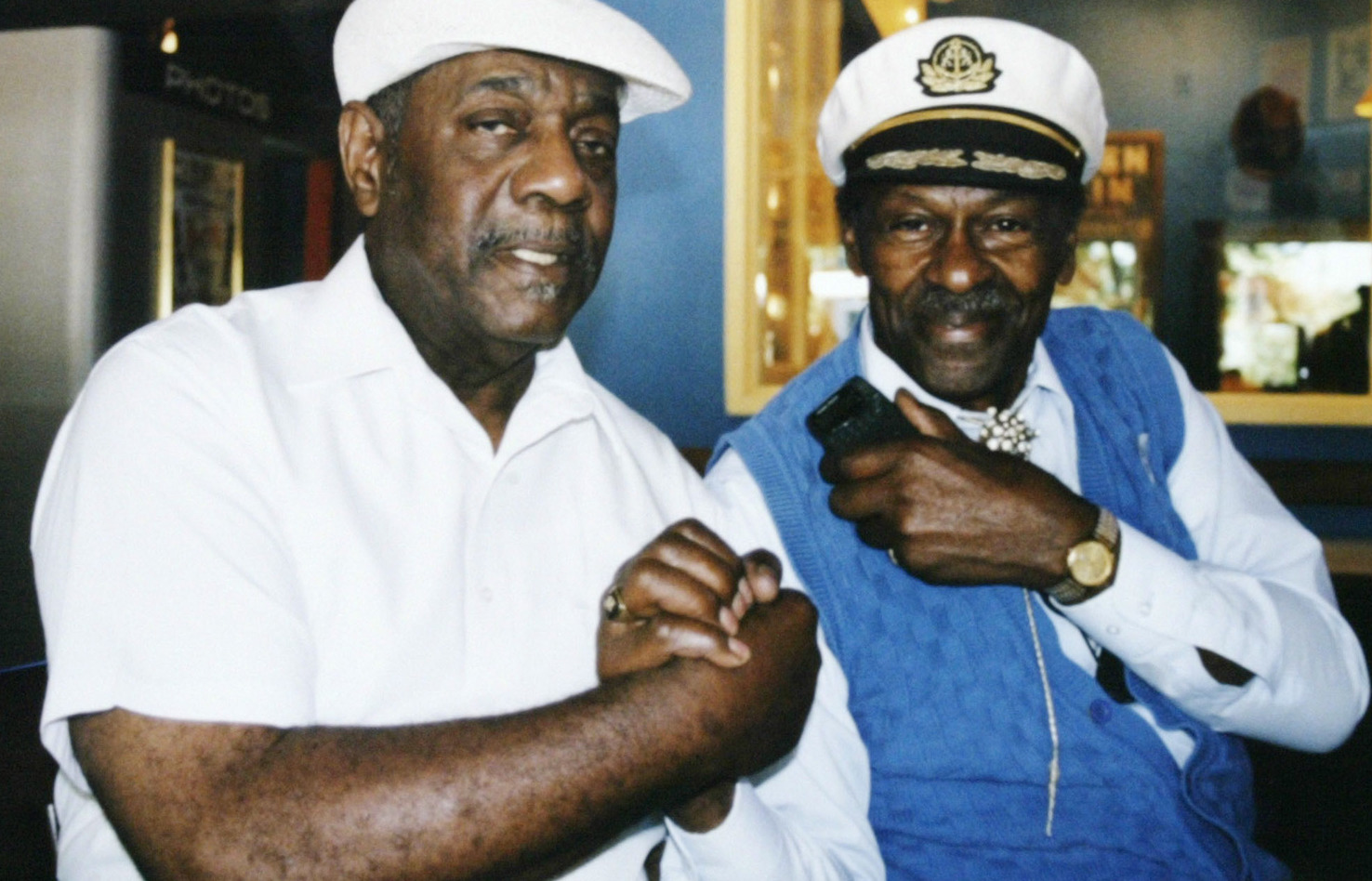New York (AP) – On Aug. 21, 2002, sitting in a nondescript little conference room inside a St. Louis law firm, Chuck Berry was asked something that called into question not only his own legacy, but that of rock and roll itself.
Two years prior, Johnnie Johnson had sued Berry. In his suit, Johnson claimed he’d co-written, on his piano, nearly every song in Berry’s remarkable 1950s and ‘60’s run – “Roll Over Beethoven,” “Back in the U.S.A.” and “Nadine,” among many others – classics that helped sow the seeds of a worldwide musical and cultural revolution.

Having gotten neither credit nor a dime of the millions in royalties those songs had generated, Johnson set out – nearly 50 years later – to rewrite history via the courts.
Though the case had started slow – lawyers jousting, sending letters, serving subpoenas – on that day in August 2002, inside that little conference room, Johnson’s attorney had the chance to ask Chuck Berry, in person and under oath, the question that cut to the heart of the case:
“Do you believe as you sit here today, that Johnnie Johnson had any part in creating the songs that we’ve said he did?”
“No” or even “Hell no” would have been perfectly acceptable (and, to Berry’s lawyers, highly desirable) answers. But instead, Berry’s response was profoundly equivocal:
“In a roundabout sense, I suppose he did. I don’t know, but I suppose he did; but in a legal sense, no, because I consider myself having written any songs that are out now with Chuck Berry on it, because that’s the way it went, I composed it and I did it.”
A good trial lawyer could’ve made a lot of hay with that: “Mr. Berry has testified that Johnnie Johnson helped create these songs in a roundabout sense… just not in a legal sense,” one can easily picture a jury hearing in closing argument, “but you, ladies and gentlemen, get to decide how the law applies here, not Mr. Berry.”
A jury, however, would never hear the case. On Oct. 21, 2002, just two weeks before trial was set to begin, the judge ruled against Johnson. He decided that the statute of limitations had expired – Johnson had waited too many years to sue – and that was that. Or was it?
In the course of Berry’s sworn deposition, and Johnson’s own, taken two months earlier, the two men spoke more expansively about their part in rock and roll’s creation than they ever had before – or ever would again. They even played their instruments – Johnson on piano and Berry on guitar and piano – trying to show what they did and how they did it.
Neither man would bend on his respective legal position. On that, reasonable minds can disagree. It’s not easy to mark the point at which a creative contributor becomes a co-author. But both men were candid about the creative process, itself, and how it was fueled by their musical interplay.
Most of us view Berry as the self-reliant father of rock and roll, the mastermind who created these amazing songs essentially from scratch. Others see Johnson as the jilted, true composer of the music that turned Berry’s lyrics into classic songs.
But read what Berry and Johnson have said themselves, under oath, and you can see it was a collaboration – their unspoken musical bond – that gets closest to the truth of how these classic, wildly influential songs were born.




